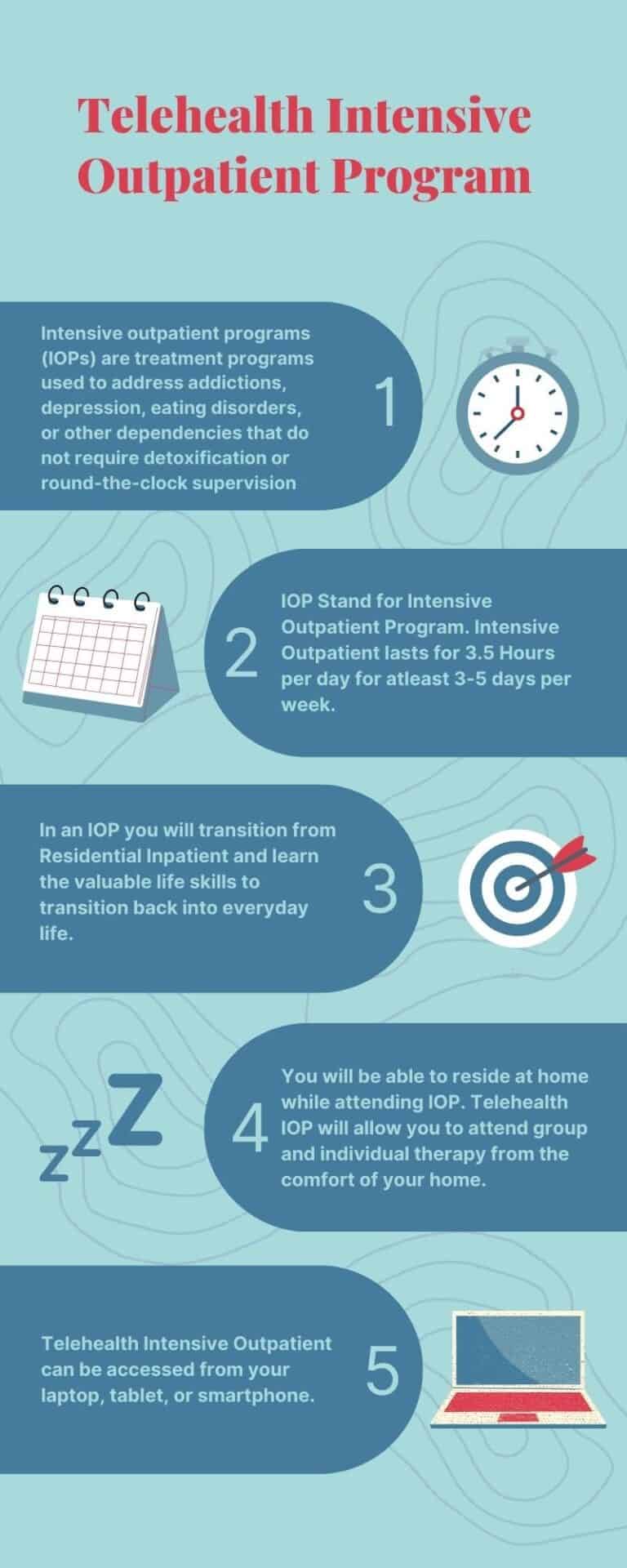Specialist Tips for Locating the Best Intensive Outpatient Program (IOP).
Specialist Tips for Locating the Best Intensive Outpatient Program (IOP).
Blog Article
Navigating the Complexities of Twin Medical Diagnosis Therapy Within an Intensive Outpatient Program Establishing
In the world of mental health and dependency treatment, the intersection of twin diagnosis presents a nuanced difficulty that demands a thorough and customized approach. Within the confines of an Extensive Outpatient Program (IOP) setting, the intricacies of attending to co-occurring mental wellness conditions and substance utilize disorders need a delicate equilibrium of experience and sources to navigate. The assimilation of evidence-based practices, joint efforts amongst multidisciplinary groups, and a keen understanding of the one-of-a-kind needs of each person are important parts in efficiently taking care of dual diagnosis within an IOP structure. By discovering the complexities of double medical diagnosis treatment within this intensive outpatient context, a clearer course arises in the direction of holistic and sustainable recuperation for those grappling with these intertwined difficulties.
Dual Diagnosis Overview
What is the significance of comprehending twin diagnosis in psychological wellness treatment? It is crucial to acknowledge and resolve this comorbidity as it can significantly affect the performance of psychological health treatment.
Understanding twin diagnosis is vital as it requires a comprehensive and incorporated method to therapy. By acknowledging the interplay in between material usage and mental wellness, doctor can customize interventions to satisfy the one-of-a-kind demands of each individual. This all natural method not just addresses signs yet likewise targets underlying variables that contribute to the dual medical diagnosis.
Furthermore, neglected dual medical diagnosis can cause a cycle of regression and worsening mental health and wellness symptoms. By acknowledging the complexity of twin medical diagnosis and providing customized care, medical care professionals can sustain people in achieving long-lasting recovery and boosted psychological wellness.
Tailored Therapy Plans
Recognizing the elaborate interaction in between substance usage conditions and psychological health and wellness conditions, the development of tailored treatment strategies is paramount in attending to the complexities of dual diagnosis in mental wellness treatment. Tailored treatment strategies are individualized strategies that think about the unique requirements, obstacles, and goals of individuals dealing with dual medical diagnosis. These plans are developed collaboratively by a multidisciplinary team of specialists, including psychiatrists, psychologists, social employees, and dependency specialists, to ensure comprehensive and integrated care.
Tailored treatment plans typically entail a mix of treatments, drugs, and behavior interventions that target both the substance usage disorder and the psychological health problem at the same time. These strategies might consist of cognitive-behavioral therapy, dialectical actions therapy, medication-assisted therapy, private counseling, group treatment, and family treatment, to name a few evidence-based treatments. By tailoring treatment strategies to private situations, customized strategies can resolve the source of dual medical diagnosis, promote lasting healing, and boost overall index top quality of life for people having a hard time with co-occurring disorders.
Integrated Care Strategy

By integrating social treatments like family members treatment, employment assistance, and area resources, the therapy comes to be much more all natural and tailored to the person's specific needs. On the whole, an incorporated care method in twin diagnosis therapy within an intensive outpatient program setup aims to supply extensive, efficient, and individualized care to people facing co-occurring conditions (Intensive Outpatient Program (IOP)).
Obstacles in IOP Setting
In the context of twin medical diagnosis treatment within an extensive outpatient program, navigating the intricacies of co-occurring substance usage conditions and mental health conditions provides substantial difficulties. Among the main obstacles in the IOP setting is the control of treatment in between psychological wellness professionals and compound misuse professionals to make certain a thorough therapy strategy. This calls for efficient communication, collaboration, and a deep understanding of just how these conditions communicate and affect each other.
Additionally, the fluctuating nature of material usage disorders and psychological wellness problems includes one more layer of complexity - Intensive Outpatient Program (IOP). Customers in an IOP may experience sudden shifts in their symptoms or substance food cravings, requiring prompt intervention and modification of therapy techniques. Balancing the intensity of therapy and assistance while enabling customers the adaptability to handle their everyday duties can be a delicate balance to maintain
Moreover, resolving stigma and resistance to therapy within the IOP setup can hamper progression. Some individuals may be hesitant to disclose their dual medical diagnosis or may really feel embarrassed, hindering their interaction in the therapeutic procedure. Overcoming these obstacles requires a helpful and non-judgmental environment that fosters trust and openness.

Collaborative Professional Initiatives

Joint efforts likewise prolong to normal communication and information sharing amongst team participants to make certain a cohesive therapy approach. Ultimately, an unified front of professionals functioning with each other enhances the efficiency of twin medical diagnosis therapy within an intensive outpatient program.
Final Thought
Finally, effective double medical diagnosis therapy within an extensive outpatient program setting requires tailored therapy strategies and an integrated care method. Challenges may arise in this setup, however collaborative initiatives amongst experts can assist navigate these complexities. By resolving the distinct demands of people with co-occurring mental health and compound utilize conditions, IOP programs can give extensive and all natural like support recuperation and news total health.
Report this page